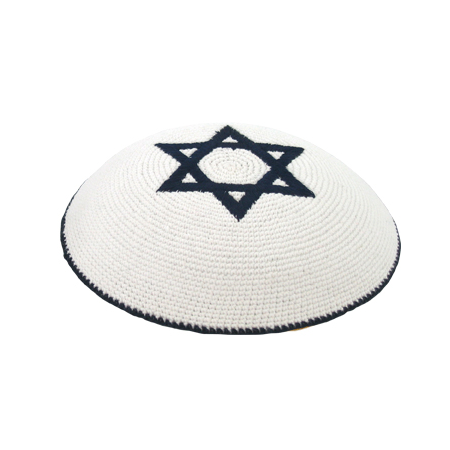
Are We Losing Out by Working?
For those of us who do not learn Torah all day, there are quite a number of ways to bring the Divine Service into the workplace.

Is it a mitzvah to work instead of learning Torah all day?
Work is not a blessing. It is a curse. We have had to endure it since Adam ate from the fruit and Hashem decreed that from the sweat of our brow, we would eat bread.
Rabbi Lazer Brody was asked, “Should Haredim fight in the IDF?” His answer was clear: “Soldiers toil all day to serve Israel. If you can match that in Yeshiva or Kollel, or at least make a genuine effort to do so, learn. If you cannot, then fight.”
The same can be said for a profession. If you can put in the effort to learn Torah full-time, it’s the greatest work there is. If you cannot, make sure to set a time for Torah, and then do what you need to do in your profession.
In the greater scheme of Divine Service, are you losing out by working?
Yes and no. There is a lot you can do at work to earn more than a paycheck.
Working Your Way Up
Here is a long (but partial) list of opportunities for Divine Service while working:
1. Ma’aser. According to the Tanya, the 10% you give to charity sanctifies the 90% you use to support your families. Granted, you shouldn’t turn your work into an idol by putting in 80 hours a week, but for most jobs, making sure to give 10% of your net earnings to charity is a huge blessing.
2. No Stealing. How easy is it to take some extra items – for example, pens, notepads, snacks – from the office for personal use? How easy is it to put some personal expenses on the company credit card? How easy would it be to use the company car for a personal trip without permission?
How can you perform the huge mitzvah of not stealing time from the company? By finding ways to keep yourself occupied with work all the time during work hours, or by having some sort of formal or otherwise agreement with the boss that as long as the work is completed, it is okay to take breaks on the internet. You have numerous opportunities to overcome the simple temptations to observe the mitzvah of “Do Not Steal” that is part of the Ten Commandments.
3. Shmirat HaLashon. This is a HUGE mitzvah. Lashon hara can be up to 20 sins every time you do it. The care you must take in the only ability that differentiates man from animals – the power of speech – is so important that Hashem created two gates for your tongue: your teeth and lips.
Gossip is lashon hara. Telling tales, true or otherwise, is lashon hara. Saying anything that can harm the reputation of someone else, even if it is true, is lashon hara.
If keeping your mouth shut gives your adversaries the golden opportunity to make you look bad even to the point of endangering your standing in the company – and you still hold on to this mitzvah, you create a major merit for yourself and all of Israel.
4. Honesty. One of the three questions you are asked at the end of your life is “Did you deal honestly in business?”. You have a chance to perform this mitzvah often in the workplace.
5. Emuna. If you don’t play “the game” at work, you might be serving coffee to those who do. Hashem can give us a doozy of a life test by doing His will while watching those who don’t do His will rise up the corporate ladder, quite often at your expense. Those sharks who make snide comments, who tell backbiting stories when you’re busy working at your desk, or who hint at your long beard or weird beanie, might just become your boss.
They might be the people who fire you.
That’s where the real promotion sets in. This is your opportunity to know for sure that this situation is from God. It is good. It is from Him and not these people, and it is for your soul correction.
It is a test. After you pass it, you advance in your life’s mission.
Knowing that the same scenario could happen again and again, keeping a smile on your face, and never losing hope that it’s all for a purpose, is what makes your life worthwhile.
This is the great test of emuna. After something like this happens, and you still pray with all your heart, you are still honest, you get smacked down by gossip and still refuse to engage in any yourself, you are on your way to becoming a master of emuna.
TIP: When these episodes do happen, and they happen to all of us, immediately pick up a copy of The Garden of Emuna and start reading.
6. Kiddish Hashem (Sanctification of Hashem)! When you don’t reply to gossip and attacks, or when you are at your desk on time, or when you stay longer for every minute you arrive late, or when you always have a smile for someone, or when people start to notice they can trust your integrity –
That becomes a Kiddish Hashem. You are representing Hashem in the best way possible.
The workplace may be the only venue for non-observant people to see a Torah Jew. It may be your only chance to demonstrate what Torah brings to the world. You can make an enormous impact just by being a good Jew in front of people who have never met one before.
Along with a paycheck and free coffee, there are still lots of benefits and opportunities for Divine Service for those of us who aren’t ready for Kollel.
***
The Ben Horin family lives in Afula with their children, a new high-tech center, Jewish and Arab neighbors, and Matilda, the local camel. David’s Israeli startup, Center Stage Content, provides content services for startups and small businesses.












8/30/2022
Really a great article!
Another suggestion: Before you start your work day, say the Hitkashrut prayer to bind all of the work you do during the day with the tzaddikim.